♬ Crystal ball
There’s so many things I need to know
Crystal ball
There’s so many things I’ve got to know
Crystal ball…♬
Music and lyrics by: Tommy Shaw, recorded by Styx.

I wanted to end off this year by gazing into the crystal ball and make a list of the top 10 legal technologies that I see influencing 2011. There is always a danger in making predictions but it is also a bit of fun too. So without further ado here is Dave’s Top 10 List of Legal Technologies for 2011:
10. Lawyer Apps Bloom
Whether it is on a BlackBerry, an Android-based tablet or an iPad, the next thing frontier in legal marketing will be the legal App that is downloaded onto your mobile device. We are already seeing the first signs of these emerging:
These are just an “app-etizer” of the legal apps that will soon be available that will seek to provide useful information to clients in the expectation that the clients will then follow the apps to the law firms.
9. The Apple-Mac Invasion Continues
Law firm administrators are telling me that lawyers in large numbers want to work away on a Mac rather than on a PC. While the latest Microsoft Office 2011 for the Mac has just been released, there are still substantial legal software programs that has been written for Microsoft Windows only, which is a drawback to working on a Mac in a Windows environment. However, there are factors that are changing this (that are mentioned below). The growth of Cloud Computing, the iPad and downloadable Apps for the iPad are the combination that will lead the change. Lawyers are adopting the iPad and integrating that into a Windows environment. This trend is only going to get bigger and bigger as the Cloud and Apps continue to grow. Furthermore, the number of lawyers and law firms that move entirely to Macs will continue to grow. But the Apple device that will be the big game changer will be the iPad.
8. E-lawyering Emerges
The three biggest words in real estate are: “Location, location location.” Well these days the most important location is being on the Web. While the American Bar Association’s 20/20 Commission on Ethics ponders the effect of new technologies on the practice of law, lawyers such as Stephanie Kimbro and others are busy pushing the envelope and seeking out ways of using the Internet to not only reach new clients but to build a virtual law firm on the web. Time, as they say, waits for no one.
7. Video Conferencing
Whether it is GoToMeeting, Adobe Acrobat Connect or even Skype video conferencing, there is no question that low-cost video conferencing is going to become a big factor in lawyer-client communications. There are several reasons for this. Air travel is becoming more expensive and an ever-increasing hassle. Clients are looking at ways to reduce costs. Not the least is the fact that clients themselves are spending a large amount of time on the internet and as such, using web-based communications is a natural extension of how they (and increasingly we as lawyers) will be spending our time.
6. Social Media and the Courts
Whether it is looking for evidence on facebook for use in trials or the posting of Tweets and updates on facebook from inside the courtroom, there is no question that the courts are heading for a collision with the ‘always-on, always-connected’ nature of social media. We have had the most recent example of the Wikileaks’s founder, Julian Assange’s hearing, where the Lord Chief Justice in the UK allowed the live use of Twitter, texts and email from within the courtroom. However, other judges may not be quite so accepting of the inroads of social media into the traditional court process. We can also expect to see evidence gleaned from social collaboration sites such as facebook increasingly being sought by parties to a court proceeding.
5. Legal Web Pages and Blogs optimized for Mobile Devices
Mobile Marketing Watch has stated that: In 2014, there will be more people accessing the mobile web in China than there are people in the USA. The mobile web has arrived. As a result in 2011, law firms will have to ensure that their web pages, blogs etc are optimized for viewing over the mobile web if they hope to reach their potential clients – who will be accessing the web from a mobile platform.
4. ODR
Today people communicate and collaborate on the web, they meet on the web, buy and sell goods and services on the web and get into disputes on the web. It is only natural that they will seek to resolve disputes via the Web. Online Dispute Resolution (“ODR”) will expand greatly in 2011, driven by such movements as the ODR and Consumers Conference held in Vancouver in November, 2010. The UNICTRAL working group and a series of worldwide conferences on ODR will ensure that this movement will only continue to grow.
3. Wireless or Wired Internet Access in the Courts
Lawyers are communicators. They research legal case databases, they remote access into their office and they read and respond to emails and other collaborative communication technologies from almost everywhere using mobile devices. That is, everywhere except in court. In 2011, there will be a growing movement for lawyers to be able to access the web safely and securely from within courtrooms. Court administrators will be under increasing pressure to provide internet access from within courtrooms for use by lawyers as part of the trial and dispute resolution process.
2. The Cloud
There is no denying that the Cloud computing model offers advantages for mobile lawyers. Notwithstanding the ethical and practical concerns on lawyers using the Cloud, this movement will continue to grow, particularly as these concerns are addressed by legal cloud providers. 2011 will see a huge growth in cloud options for lawyers. One factor that may ‘cloud’ the issue is whether cloud providers will continue to be proactive in responding to criticism in security, privacy and portability of data from one application to another (in case a cloud provider fails). If they address these issues positively that will greatly increase the uptake in cloud applications. If they do not, then legal regulators may (quite properly in my opinion) ask whether the cloud providers are properly addressing concerns regarding safeguarding the public interest when lawyers utilize cloud-based applications.
1. Tablet Computing
Tablet-based computing in general (and the iPad in particular) will be the biggest influence in 2011, in my opinion. The tablet computer combines many of the factors listed above – the cloud, mobile computing, mobile applications, video conferencing, social media and the like. The tablet is a light-weight device that is intuitive, internet-connected and user-friendly. The iPad is leading the charge in this regard and will have a huge influence in how lawyers connect with the office and with clients, undertake research, update social media sites, craft work product and share that work product with others.
Those are my top 10 legal technology crystal-ball gazing-predictions for 2011. I hope you had as much fun reading them as I did writing about them. Happy New Year!
This entry was posted on Friday, December 31st, 2010 at 12:14 pm and is filed under Change Management, Dave's Top 10 Lists, Issues facing Law Firms, Law Firm Strategy, Technology, Trends. You can follow any responses to this entry through the RSS 2.0 feed. You can leave a response, or trackback from your own site.3 Responses to “Top 10 Legal Tech Predictions for 2011!”



















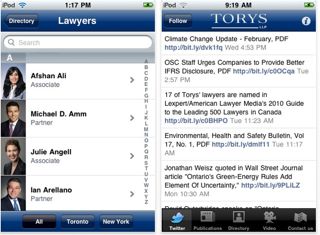

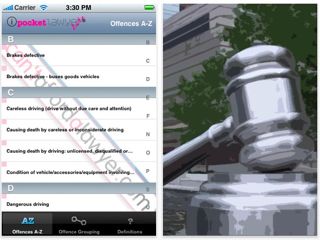
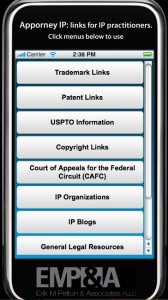
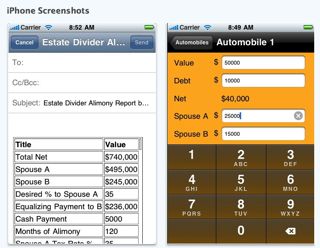
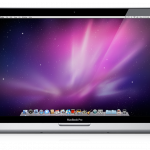



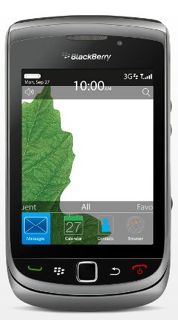
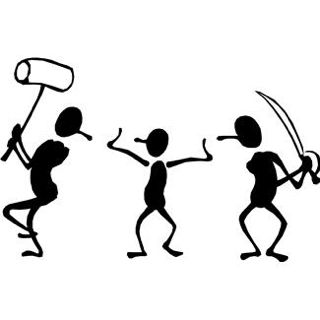



February 16th, 2011 at 9:51 am
What can an IPad do that a laptop cannot? Laptop has a bigger screen and a keyboard, which more than makes up for decrease in weight in my opinion. Besides being better,they are cheaper. Am I missing something?
February 16th, 2011 at 10:06 am
Kirby:
You can acquire a bluetooth keyboard for an iPad which adds a bit of weight but provides you with an alternate to the touchscreen keyboard. A laptop does have a bigger screen but for taking notes and such, an iPad-sized screen may be just fine. I think the biggest difference is that an iPad is really a way to access the ‘cloud’ and do your work that way as opposed to working on a laptop and saving everything to the HD. Different strokes for different folks!
Cheers,
Dave
December 29th, 2011 at 5:50 pm
[…] year on Dec. 31, 2010 I posed a Top 10 Legal Tech Predictions for 2011. This year I asked my very good friends and colleagues to contribute their top Tips and […]